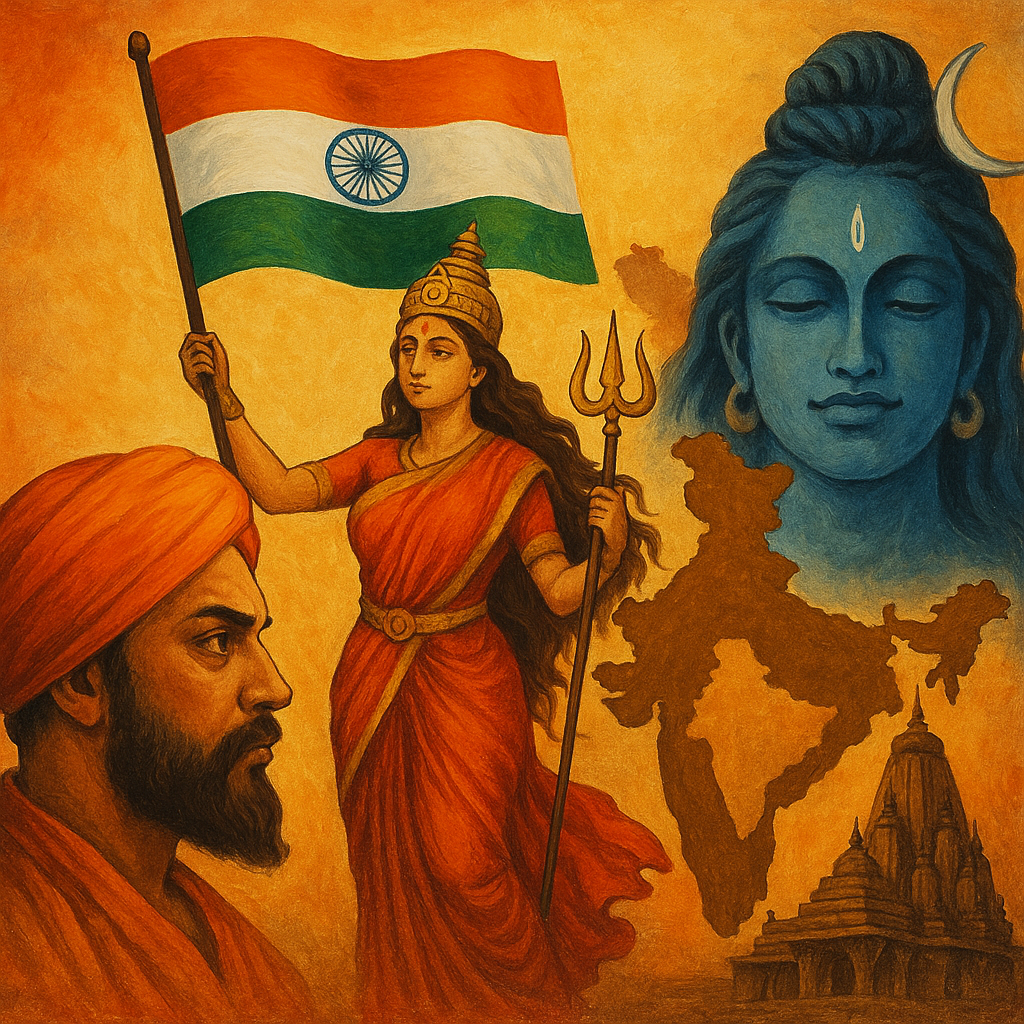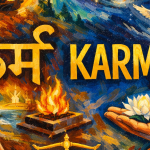Faith & Nationalism: The Indian Case and Global Parallels
In today’s world, faith and nationalism often walk hand in hand, shaping identities, politics, and cultural narratives. India offers a particularly fascinating case where religion is not just a private belief but a public expression of belonging. The blending of spiritual traditions with patriotic sentiment has deep historical roots, yet it also mirrors global trends where nations increasingly redefine themselves through religious-cultural lenses.
India’s Historical Foundation: Unity in Diversity
India has long been a civilization rather than just a modern nation-state. From the Rigvedic hymns to the freedom movement, religion has been a thread weaving diverse communities together. Leaders like Mahatma Gandhi viewed spirituality as essential to nation-building — his concept of Ram Rajya symbolized moral governance rather than religious domination. Similarly, Rabindranath Tagore envisioned India’s soul as plural, where multiple faiths coexisted under a shared moral vision.
Post-independence, India’s Constitution enshrined secularism, not as the absence of religion, but as equal respect for all faiths. This form of secularism, distinct from Western models, allowed spiritual and national identities to coexist without contradiction. Temples, mosques, gurdwaras, and churches continued to serve as both devotional and community spaces, reminding citizens that India’s strength lay in its diversity.
The Rise of Cultural Nationalism
Over the last few decades, the notion of nationalism in India has undergone transformation. The idea of cultural nationalism — emphasizing India’s ancient spiritual heritage as a unifying force — has gained prominence. Organizations and thinkers promoting this vision argue that Indian identity cannot be understood without acknowledging its religious and philosophical roots, particularly those stemming from Hindu civilization.
This narrative has appealed to many who feel that India’s global resurgence should also reflect pride in its spiritual traditions. Temples have become not only religious spaces but also symbols of cultural revival — from the grand consecration of the Ram Temple in Ayodhya to the global celebrations of Yoga and Ayurveda.
However, critics caution that when cultural pride turns into political exclusion, it risks alienating minority communities. The challenge for India lies in balancing the celebration of heritage with the inclusive ideals enshrined in its Constitution.
Global Parallels: Faith in the Service of Nation
India is not alone in this intertwining of faith and nationalism. Across the world, religion continues to shape national narratives.
United States: The phrase “God Bless America” encapsulates the deep Christian moral undertones in American politics. From presidential inaugurations to national debates on abortion and education, religious values frequently guide public discourse.
Russia: The Orthodox Church plays a crucial role in legitimizing national identity. The idea of “Holy Russia” combines patriotism with spiritual mission, reinforcing unity in times of political tension.
Israel: Judaism and nationalism are deeply intertwined in the state’s foundation, where religious identity directly influences citizenship, culture, and politics.
Middle East: In countries like Iran and Saudi Arabia, the state itself is built upon religious legitimacy — faith becomes not just cultural but constitutional.
Europe: Even in largely secular societies, there has been a resurgence of Christian identity politics, especially in reaction to immigration and globalization.
In this global context, India’s spiritual nationalism appears as part of a broader trend — societies turning to faith to rediscover cultural confidence in an uncertain world.
The Modern Tension: Inclusion vs. Identity
While faith-based nationalism can unify, it can also divide. When religion becomes a boundary marker of who truly “belongs,” pluralism suffers. India’s history offers a reminder that spiritual philosophies like Vasudhaiva Kutumbakam — “the world is one family” — are inherently inclusive.
The ongoing debate, therefore, is not about whether faith should play a role in national life, but how it should. Can religious identity coexist with civic equality? Can pride in cultural heritage coexist with respect for all traditions? These are not merely Indian questions — they echo in America’s “culture wars,” Europe’s debates on migration, and the Middle East’s struggle between reform and orthodoxy.
The Way Forward: Spiritual Universalism
India’s greatest gift to global thought has been its ability to see unity in diversity. The spiritual foundation of its civilization — from the Upanishadic vision of Ekam Sat Vipra Bahudha Vadanti (“Truth is one, the wise call it by many names”) — offers a universal model.
If nationalism draws energy from this inclusive spirituality, it can create a sense of belonging without exclusion. Festivals, pilgrimages, and interfaith dialogues can serve as bridges rather than barriers. Faith need not be a wall; it can be a window into shared human values.
A Nation Guided by Conscience
Faith and nationalism, when harmonized, can uplift a nation’s moral compass. But when faith becomes a tool for political gain, it risks eroding the very ethics it seeks to uphold. India’s challenge — and opportunity — lies in ensuring that its spiritual nationalism remains humane, inclusive, and forward-looking.
~Religion World Bureau









